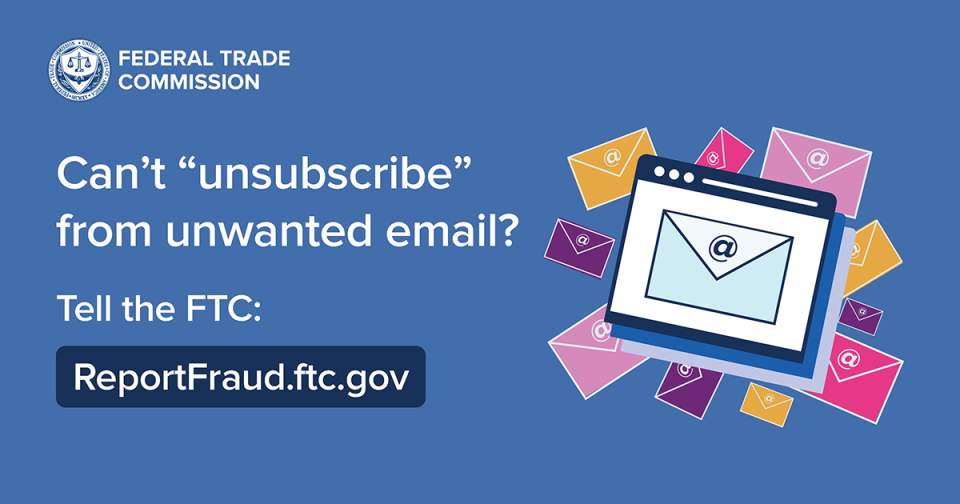

Oh, the joy of clicking “unsubscribe” when your email inbox overflows with spam messages trying to sell you stuff you DO NOT WANT! But what if there’s no “unsubscribe” link and the emails won’t stop?
The FTC says that’s what happened to people who set up “Free Membership” accounts with Experian to manage access to their Experian credit report information online. The accounts let people “freeze” their credit to make it difficult for identity thieves to open new accounts in their name and “unfreeze” their credit to apply for a mortgage or other new credit.
But, the FTC says, the free accounts came with an extra that many people didn’t want — emails from Experian pitching its credit card offers, credit score services, auto-related products and services, and upsells for its paid membership programs. According to the FTC, Experian sent the emails even to people who opted out of getting its marketing emails, falsely claiming the email “contains important information about your account.” What was missing from the messages? The FTC says the emails didn’t include a way for people to opt out of getting them, in violation of the CAN-SPAM Act.
Experian Consumer Services agreed to pay a $650,000 civil penalty and comply with the CAN-SPAM Act to settle an FTC lawsuit. The CAN-SPAM Act gives you the right to stop companies from sending you email that primarily advertises commercial products or services. Among other things, it requires companies that send marketing emails to include a clear and conspicuous notice that you have the right to opt out of getting future marketing emails. They also must give you an “unsubscribe” link or other internet-based way to opt out.
If you get unwanted marketing emails, opt out of getting them. The company must honor your request within 10 business days. If there’s no way to opt out or if you still get unwanted email from the company after 10 business days, tell the FTC at ReportFraud.ftc.gov.
Comments have been turned off for this consumer alert.It is your choice whether to submit a comment. If you do, you must create a user name, or we will not post your comment. The Federal Trade Commission Act authorizes this information collection for purposes of managing online comments. Comments and user names are part of the Federal Trade Commission’s (FTC) public records system, and user names also are part of the FTC’s computer user records system. We may routinely use these records as described in the FTC’s Privacy Act system notices. For more information on how the FTC handles information that we collect, please read our privacy policy.
The purpose of this blog and its comments section is to inform readers about Federal Trade Commission activity, and share information to help them avoid, report, and recover from fraud, scams, and bad business practices. Your thoughts, ideas, and concerns are welcome, and we encourage comments. But keep in mind, this is a moderated blog. We review all comments before they are posted, and we won’t post comments that don’t comply with our commenting policy. We expect commenters to treat each other and the blog writers with respect.
We don't edit comments to remove objectionable content, so please ensure that your comment contains none of the above. The comments posted on this blog become part of the public domain. To protect your privacy and the privacy of other people, please do not include personal information. Opinions in comments that appear in this blog belong to the individuals who expressed them. They do not belong to or represent views of the Federal Trade Commission.